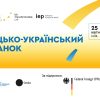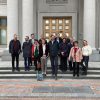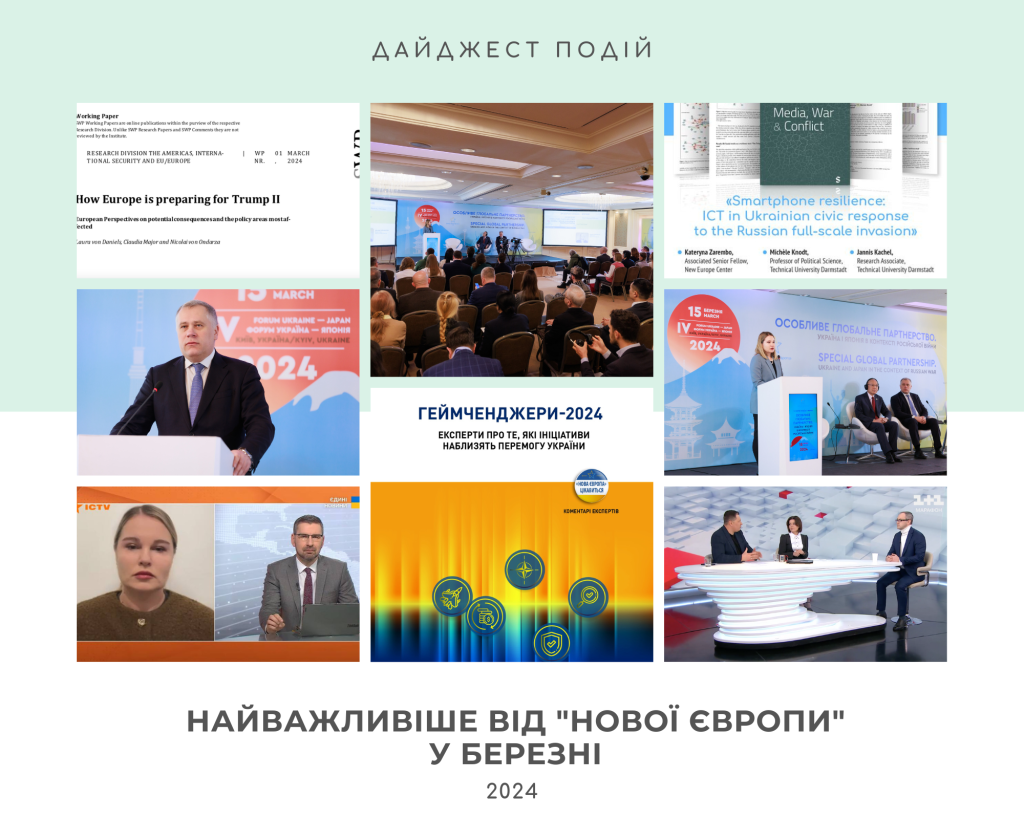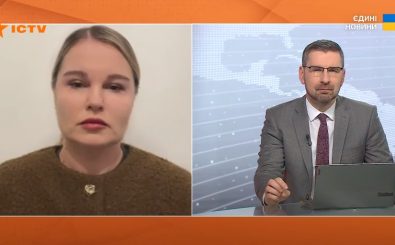Policy Memo to the Ukrainian stakeholders on the occasion of government formation in the Federal Republic of Germany
Finalization of the coalition talks between Christian Democratic Union/Christian Social Union and Social Democratic Party opens a new page for Ukraine-Germany relations. With this view New Europe Center developed a number of recommendations for strengthening the relations between the two countries in the new reality. It would be a great mistake to think along the lines “Merkel is here to stay, so everything is good”. In the next 2-3 years Ukraine should learn to systemically deal with Germany beyond the dialogue with its chancellor.
On the cooperation with Bundestag:
- Intensify the cooperation with Bundestag and be proactive. After those deputies, who used to be in charge of “Ukraine track”, didn’t run for reelection (e.g. Marieluise Beck, Franz Josef Jung, Karl Georg Wellman, Gernot Erler, Franz Thönnes), Ukraine should be making new friends in the German parliament and enhance the interparliamentary dialogue (which has traditionally been the “weak link” of the bilateral relations). Among the new names in the German Bundestag who are going to be in charge of “Ukraine track” are Frank Steffel (CDU/CSU), Nils Schmid (SPD, Member of the Foreign Affairs committee), Fritz Felgentreu (SPD speaker on security and defense), Manuel Sarrazin (Bündnis 90/Die Grünen). The Ukrainian MPs belonging to the Ukraine-Germany interparliamentary friendship group should initiate a visit of the German parliamentarians in charge of the bilateral relations to Ukraine. On Ukraine’s side, the composition of the interparliamentary friendship group should be reviewed to include the most motivated MPs.
- Given the high number of the new members of the Bundestag Days of Ukraine in Bundestag should be launched, including press briefings and discussions with Ukrainian MPs, government officials, think-tanks, civil activists and celebrities who are popular in Germany.
- Ukrainian MPs of VRU should initiate a dialogue with members of the European Parliament who are responsible for Ukraine and Eastern Europe because of the close ties between the European party families and German parties represented in the Bundestag, especially with respect to the European People’s party, the Social democrats, the Greens and the Liberals.
On cooperation with the government and other political forces:
- Immediately after the government is formed the visit of the German State Secretaries should be organized. This cooperation format has proved its effectiveness on the level of individual ministries, but its potential is yet to be explored to the fullest. Ukrainian ministries should demonstrate an enhanced interest towards the visits and cooperation of this kind.
- Jointly develop a list of precise benchmarks of reforms in key areas in order to measure.
reform progress in Ukraine (possibly in the form of infographics). The following topics are of particular importance in Germany: the state of affairs of Ukraine’s current reform process in the fields of justice/rule of law (courts, prosecution and law enforcement organs) and fight against corruption. - Ukrainian politicians and diplomats should enhance their cooperation with those political forces which have not entered the government, namely, the Free Democrats and the Greens, meeting their representatives during their visits to Berlin. With the FDP it is important to portray Ukraine fairly and present business opportunities. As for the Greens, it is crucial to stress the importance of their continued advocacy on behalf of Eastern European democrats and appealing to their own history as Basisdemokraten etc.
- Likewise, the German political foundations (Konrad Adenauer Stiftung, Friedrich Ebert Stiftung, Heinrich Boell Stiftung, etc.) are all represented in Ukraine and can be approached by both Ukrainian decision-makers and civil society to promote various issues of the bilateral agenda. These are the connections channels to Germany which Ukrainian actors can use on the ground. Political foundations, as well as Bundeszentral fuer politische Bildung (Federal Agency for Civic Education) are also good partners for activities in the German Bundesländer.
- Provide more resources to the diplomatic staff in charge of the bilateral relations. Taking the strategic importance of Germany for Ukraine into account, the staff of the Embassy should exceed all the other embassies of Ukraine in Western European countries.
- Ukraine would win more friends in Germany if it developed and presented a Vision on reintegration of Donbas, which would tackle the issue of engagement with the Ukrainian citizens living on the occupied territories as the basis for reintegration after Russia withdraws. Reconstruction of Donbas (the government-controlled areas) can be a part of the bilateral agenda, too. Part of the German assistance can come from Deutsche Gesellschaft für Internationale Zusammenarbeit (GIZ), as long as it has a corresponding mandate in the new legislative period. The importance of such a mandate could be articulated by the Ukrainian MPs to their German colleagues.
On cooperation with German states (Bundesländer):
- Engage with German states (Bundesländer), especially in the East, where support to Ukraine is lower than in the central government. Include the capitals of the states to the itineraries of Ukrainian delegations of politicians and civil society representatives. Invite the leaders of the states to Ukraine in order to explore the potential of the cooperation, as well as to visit Donbas. The recommendations on the decentralization reform of Georg Milbradt, Special Envoy for reforms in Ukraine and ex-Prime Minister of Saxony, should be taken into account. His engagement in the reform process in Ukraine should be portrayed as the beginning of former Eastern Bundesländer’s heads engagement in the reform process in Ukraine, rather than the end of this experiment.
- It is important to launch joint visits of Ukrainian and German MPs to German constituencies. This is also a good opportunity to bring more information on Ukraine into the German Bundesländer.
- City partnerships should not be neglected. Many MPs on both sides have electoral constituencies comprising cities with more or less functioning city partnerships. For example, Nils Schmid comes from Filderstadt, which is a partner of Poltava, and even spent part of his youth in Poltava. Hometowns of German or Ukrainian MPs could become islands of cooperation if there are dedicated people on both sides.
- Together with German think-tanks develop an explainer (an op-ed) on why the sanctions on Russia should be maintained and increased. Publish the explainer in a leading German media as well as in local media in Eastern states (Brandenburg, Mecklenburg-West Pomerania, Saxony, Saxony-Anhalt, and Thuringia), whose leaders recently requested to lift sanctions on Russia. A document of a similar kind should also be prepared on Nord Stream-2.
On business links:
- Ukraine should encourage the attraction of the German investments under principle “zero obstacles to any German investor”. Ukrainian government should continue to promote the operation of the German-Ukrainian Chamber of Industry and Commerce. Ukraine should also acquaint German businesses investment opportunities in Central and Eastern Ukraine.
On security cooperation:
- Ukraine should continue the cooperation with Germany in security area without any special emphasis on Euro-Atlantic integration. Ukrainian and German armies, both being in the process of modernization, can learn a lot from each other, starting with humanitarian cooperation. Another point of cooperation can be the dialogue on the establishment of a UN mission in the occupied territories of the East in Ukraine.
On cooperation between civil society and culture diplomacy:
- Ukraine should keep in mind the high impact of the NGO sector, especially think tanks and journalists, on the decision-making process in Germany. Ukrainian politicians and diplomats should actively engage with key media and “Denkfabriken”. Among others, Ukrainian-German expert dialogue, started in June 2017 by the German Council on Foreign Relations (DGAP) and International Renaissance Founation, has gained prominence lately in its impact on the bilateral agenda. The Institute for European Politics is active in transferring knowledge on Ukraine to Germany by organizing Ukraine-related events, and serves as network platform for German und Ukrainian research and policy institutions. Zentrum Liberale Moderne has launched a project “Ukraine verstehen”, which is aimed at publishing articles on Ukraine and where Ukrainian authors could contribute. The NGO connections should be kept up, also in the form of study tours to Ukraine and with the engagement of the German academia, where experts on Ukraine are still scarce.
- German journalists based in Ukraine are still missing for the absolute majority of German newspapers and TV stations, with Deutsche Welle and being the only exemption, so Ukraine affairs are still being predominantly covered from Moscow or Warsaw. Ukraine should promote the establishment of permanent representations of German news outlets in Ukraine.
- Engage with the Ukrainian writers and intellectuals, who are popular in Germany (e.g. Serhii Zhadan, Katja Petrowskaja, Andrii Portnov, etc) as Ukraine’s “unofficial ambassadors”, invite them to speak at policy and public events in Germany, especially outside the capital, on Ukraine, etc.
- The establishment of a Ukrainian Institute as a go-to place on Ukraine in Germany is long overdue. Such space should also be connected to various already existing Ukraine-related initiatives.
- Special attention should be paid to the bilateral contacts between the youth. Ukraine could foster the establishment of a Ukrainian-German youth organization (“Jugendwerk”), analogous to the well-functioning Polish-German Jugendwerk.
- Capitalize on the Champions League Final 2018 in order to promote Ukraine’s tourism potential and culture among the German decision makers and opinion leaders, especially in the case of the German team making it to the final. Some of them are already planning their visits on the dates of tournament.
You can download the publication in PDF here
The memo was prepared by Alyona Getmanchuk, Serhii Solodkyy, Kateryna Zarembo.
New Europe Center is grateful to Joerg Forbrig, Marcel Roethig, Wilfried Jilge, Susan Stewart as well as those German contributors who preferred to keep their anonymity, for their contributions to this document.








